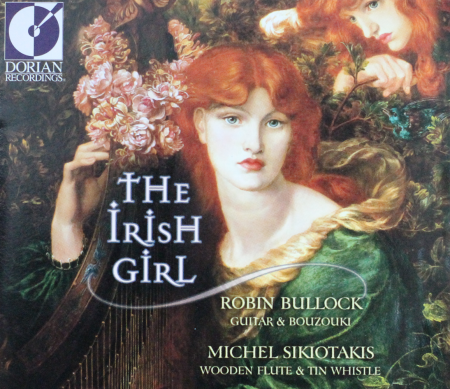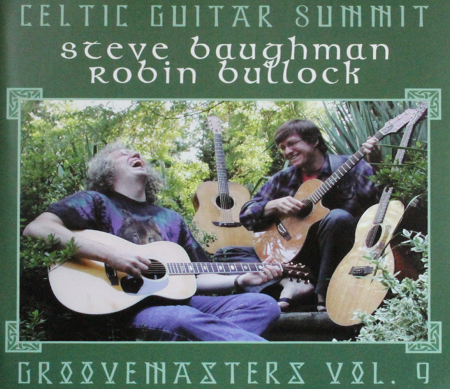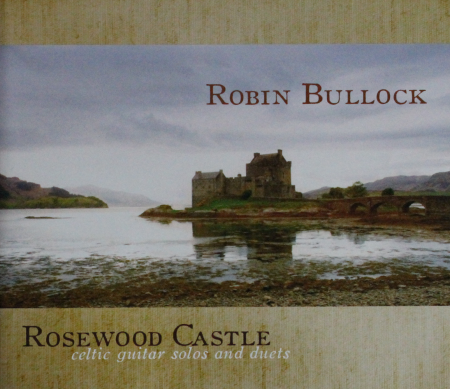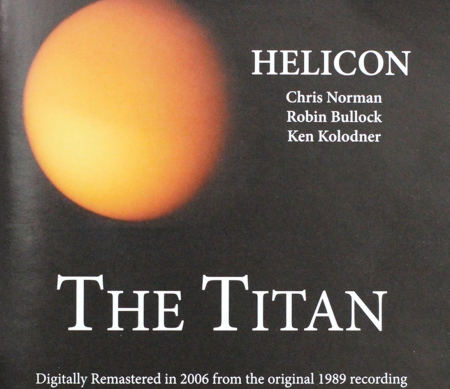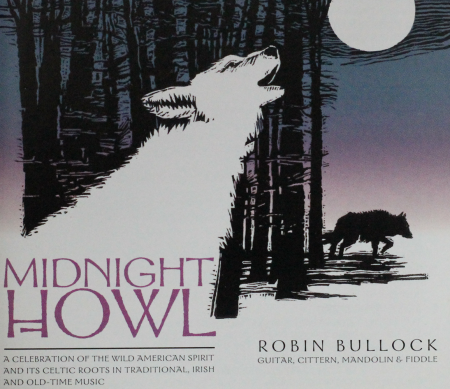Liner Notes
(Liner notes from original release on Dorian Recordings, 2003)
The traditional Irish music scene, like traditional music scenes everywhere I suppose, is a complete universe and a very small village at the same time. The music is literally all over the world now, yet everybody involved in it seems to know everybody else, if not directly then by only a few degrees of separation. There’d be nothing surprising in an American guitarist meeting a French flute player in an Irish pub in Paris and discovering a natural chemistry – which is exactly what happened in 2000 at Connolly’s Corner on the Left Bank, the night I met Michel Sikiotakis.
As soon as I heard him play, I realized that here was one of the genre’s finest flute and whistle players. He also knew a thing or two about the music, as I later found out – he’d traveled through Ireland recording great musicians (flute player Kevin Crawford, for one, well before he shot to fame with Lúnasa), he’d helped organize French concerts for the likes of the Chieftains, Altan and De Danann, and of course he’d won two All-Ireland championships, one as a member of his first group and one as a tin whistle soloist.
As for me, I’d been rambling the Irish music circuit in North America for a while, first eleven years on the road with Helicon mixing Celtic tradition with its cousins from the rest of the world, then a year and a half touring and recording with All-Ireland button accordion champion John Whelan, as well as getting to teach alongside some of the world’s greatest Celtic musicians every July at North Carolina’s Swannanoa Gathering. So my ears were primed when I came to Paris and heard Michel sailing through reels, jigs and heartbreaking slow airs, one after another, with the power and authority that only come from many years of mastery. We started hanging out at his apartment overlooking the Parc de la Villette, playing duo concerts around Paris, sharing tunes and laughs, and gradually realized that something was happening here that wanted to be documented…
Enter Dorian Recordings, et voilà. It’s an honor to join such a musician as Michel in a duo, and even more, to call him my friend. We offer you here a few tunes from our first couple of years of playing together, and we hope you enjoy them.
– Robin Bullock
Notes About the Tunes by Michel Sikiotakis
1. The Irish Girl
(reels: The Irish Girl/The Musical Priest/The Charleston Reel)
Michel: wooden flute
Robin: guitar
It seemed so natural to start this recording with a strong selection of single reels! Fiddler James Morrison (1893-1947), from Ballymote in County Sligo, recorded the first two reels. “The Irish Girl” is also called “The Wild Irishman” and was recorded under that title by legendary fiddler Michael Coleman. Accordionist Jimmy Keane composed “The Charleston Reel.”
2. Collier’s
(reels: Collier’s/Doherty’s/The Blockers)
Michel: wooden flutes
Robin: guitar, mandolin
We slow down the tempo for the next three reels. This set starts with “Collier’s,” a favourite reel with pipers. One day, Francis Doherty, a (French!) tin whistle student, brought me a tape he recorded on RTE, the Irish national radio. There was a reel played by a whistle player that he wanted to learn. Here’s that tune. I never found any information about it, so I call it “Francis Doherty’s.” “The Blockers” is a composition by fiddler Seán Ryan and figures in his book The Hidden Ireland. This feel is often played in D; I transposed it to the key of G to suite the flute, and realized afterward that that’s the original key as written in the book.
3. Kitty Magennis
(slow air & harp tune: The Banks of the Moy/Kitty Magennis)
Michel: tin whistle
Robin: guitars
“The Banks of the Moy” comes from the singing of Treasa Ní Cheanni, heard on Popular Traditional Songs, a cassette released a long time ago by CCE. Interestingly enough, Robin knew an almost identical melody from the singing of Doc Watson, who called it “Wake Up Little Maggie”! “Kitty Magennis,” a seldom-heard composition of the blind harper Turlough O’Carolan (1670-1738), appears in volume one of Donal O’Sullivan’s Carolan: The Life, Times and Music of an Irish Harper, under the section Tunes for Patrons. This track is dedicated to harp player Katrien Delavier, a great friend who sadly died much too young.
4. Paddy Taylor’s Jigs
(jigs: The Twins’ Delight/Paddy Taylor’s No. 2)
Michel: wooden flute
Robin: bouzouki
John Brady, flute player from County Offaly, composed “The Twins’ Delight.” It can be found in his tune book. The second jig comes second in a set called “Paddy Taylor’s Jigs” on flute player Paddy Taylor’s LP issued by Claddagh (CC8).
5. Galway Bay
(hornpipes: O’Mahony’s/Galway Bay)
Michel: wooden flute
Robin: guitars
“O’Mahony’s” can be found on The Star Above the Garter – Fiddle Music from Kerry (Claddagh CC5), played by Denis Murphy and Julia Clifford. I probably learned that tune from fiddler player Olivier Darras, colleague in the band Shamrock. “Galway Bay” comes from the playing of the inimitable Joe Burke.
6. The Rocky Road to Dublin
(slip jig & reels: The Rocky Road to Dublin/The Maid in the Cherry Tree/Boil the Breakfast Early)
Michel: tin whistle, wooden flute
Robin: bouzouki
This three-part version of “The Rocky Road to Dublin” comes from piper/folklorist Seamus Ennis. He recorded it on The Pure Dropin 1973 (Tara 1002) and a printed version appears in Ceol Rince na hÉireann Vol. 3, no. 58. I first heard “The Maid in the Cherry Tree” on another old CCE recording, this time of the Castle Ceili Band. This group included among others flute player Michael Tubridy, fiddler Seán Keane (both of Chieftains fame) and Seán Kelly Sr., also on fiddle. This tune is also known as “The Curragh Races.” While writing these notes and going back to this cassette, which I hadn’t heard for a long time, I realized “Boil the Breakfast Early” was actually part of the same set. Sorry boys for stealing your combination of tunes!
7. An Cailín Rua
(slow air & reels: An Cailín Rua/Paddy Fahy’s/John Stevenson’s No. 1)
Michel: wooden flute, tin whistles
Robin: guitars, keyboard
I first heard “An Cailín Rua” (“The Red Haired Girl”) on Darby’s Farewell, an LP of outstanding flute, whistle and songs by Josie McDermott, recorded by Robin Morton for the Topic label in 1976. The first reel is a composition of East Galway fiddle player Paddy Fahy. John Stevenson is a mandolin player from the USA.
8. The Flight of the Eaglets
(lament & jig: The Flight of the Eaglets/The Depth Charge)
Michel: wooden flute choir, tin whistle
Robin: guitar
“The Flight of the Eaglets” is a Highland bagpipes lament composed by pipe major William Ross. Also called “Lady MacRobert’s Lament,” it commemorates the loss of that lady’s three sons in World War II. “The Depth Charge” is a three-part jig composed by Robin. The title is a souvenir of his wilder days; a depth charge is a drink consisting of a shot glass of whiskey dropped (glass and all) into a pint of beer.
9. The Frost is All Over
(march & jigs: The Chanter’s Tune/The Maid at the Well/The Frost is All Over)
Michel: wooden flute
Robin: bouzouki, guitar
“The Chanter’s Tune” is no. 147 in Bunting’s Ancient Music of Ireland and no. 143 in O’Neill’s Music of Ireland. It’s also sometimes known as “The Chanter’s Song.” The first jig is called by eight different names by Breathnach, but “The Maid at the Well” seems to be the most common name now. The version played here is the one most favoured by pipers. I don’t remember where I got this version of “The Frost is All Over.” One of those tunes that comes into my mind when I’m stuck for a tune.
10. Lane to the Glen
(reels: Lane to the Glen/Paddy Fahy’s)
Michel: wooden flute, tin whistles
Robin: guitar
Two great fiddle tunes not commonly heard on the flute. The first one is by Ed Reavy and the second by Paddy Fahy. Thanks to John Weir for playing that first tune on fiddle at a memorable afternoon session in Miltown Malbay in 1994. The faint clicking sounds on the first tune are the F natural keys of the flute – your CD is not defective! On “Paddy Fahy’s,” played in the key of C, two “D” tin whistles are overdubbed to the flute.
11. La Valse des Niglos
Michel: wooden flute
Robin: guitar, mandolin
A Parisian gypsy waltz composed by Gusti Mahla (sometimes spelled Gousti Malla), one of the early gypsy guitar players. This setting comes from the playing of button accordionist Jo Privat.
12. The Whistling Postman
(reels: Richard Dwyer’s/The Whistling Postman/Richard Dwyer’s)
Michel: tin whistle
Robin: bouzouki
This set should really have been called “Richard Dwyer’s,” as it includes two tunes associated with that fiddle player from the well-known musical family of County Cork. I heard the first tune played by his brother Finbar.
13. O’Carolan’s Welcome
(harp tune & jig: O’Carolan’s Welcome/Bobby Casey’s)
Michel: wooden flute
Robin: guitar, bouzouki
A beloved composition of Turlough O’Carolan, followed by a version of “Bobby Casey’s Jig” heard on the Castle Ceili Band recording mentioned earlier.
14. Charles Quinn’s
(slow air, hornpipe & reels: Charles Quinn’s Lament/Callaghan’s/The Birmingham Reel/Roaring Mary)
Michel: wooden flute
Robin: keyboard, guitar
The slow air was composed for “a special occasion.” “Callaghan’s” is a hornpipe Denis Murphy used to play. I heard “The Birmingham Reel” at various sessions, although I didn’t know the name of it until recently. “Roaring Mary” is in the landmark book O’Neill’s Music of Ireland.



